Books & the Arts
/
July 8, 2024
Greater than a half century of the Poetry Undertaking
The tone was set early. It was afternoon on the Poetry Undertaking’s New Yr’s Day Marathon, the fiftieth because the occasion’s debut in 1974. After an hour and a half or so of poems, the day’s matter had come into focus. Sarah Schulman was studying a brief essay about Palestine and reaching what felt like a conclusion. “For me, personally, the turning point came when I realized that I would not want to live under occupation for even one day,” Schulman learn. “This is what we need to make Americans ask themselves: If they were being occupied and controlled, never had safety, were told what roads to go on, could not travel, could not work or walk where they wanted to without being controlled, had their kids arrested at age 9 for throwing rocks at bullying armed soldiers and then saw their fellows mass-murdered in cycles of repetition—if that was what was imposed on you, wouldn’t you do everything you could to change that? Any honest answer would be yes.”
Hours later, after the viewers had heard many requires a cease-fire, the Palestinian author and organizer Kaleem Hawa recited a poem referred to as “Maintenance,” set within the Al-Shati refugee camp. Hawa learn calmly: “Most staff have long since packed up, save for the enlistees, / snapped and folded into the regulatory matrix, / and then returned to the camp. / Their flip-flops point leftwards when they walk, / their base is the provision of goods and services, / and their tips are the sweat of men.” As Hawa mentioned to me after the studying, “I was trying to chart a different sort of affective course than the poetry of victimhood. The poem is, at once, about the liberation struggle and the infrastructures of colonization.”
The seriousness of solidarity and the facility of festive hope have lengthy been central to the Poetry Undertaking. What started in 1966 as a response to a bunch of poets getting kicked out of two cafés has, over its 58 years, turn into a nonprofit nestled in one in every of New York’s oldest church buildings. The Poetry Undertaking is a house for genuinely experimental poetry and efficiency, a loving refuge that has continued in a New York the place not a lot else has. (Not less than not one of the bookstores and golf equipment that I grew up with—apart from the Strand—have.)
The members of the Poetry Undertaking are in search of to “change what certain cultural norms are,” its former govt director, Kyle Dacuyan, informed me. Because the demise toll of the Nuseirat bloodbath climbs and The New York Instances continues manufacturing consent for genocide, it could appear that Palestine has no want of poetry from New York. However in a metropolis the place cultural establishments are used as ethical laundromats for Zionists, altering cultural norms can also be very important work. As Schulman posted to a thread on X on February 10: “why [are] so many esteemed cultural institutions in New York, sophisticated national publications, and so many American universities…completely failing to respond to the moral crisis of this bloody slaughter of people in Gaza?”
Different establishments might battle with their responses to the continued genocide, however the Poetry Undertaking has remained resolute: In October, it signed on with the Palestinian Marketing campaign for the Educational and Cultural Boycott of Israel, or PACBI. “I think it would be fair to say that it had not been a widely discussed commitment among US cultural institutions prior to that point,” Dacuyan informed me. Shiv Kotecha, a member of Writers In opposition to the Struggle on Gaza, stories that since October, at the least 176 extra organizations have endorsed the PACBI name, together with literary magazines, small presses and publishing homes, music labels, podcasts, artwork galleries, movie festivals, and efficiency venues, amongst others.
For folks engaged in broadcasting the phrases of tradition, there are poems to be written and labor to be withheld. (See the implosion of Artforum for the latter.) A mix of the fabric and the non secular is the political horizon, and that is additionally poetry’s area—however it’s not grim. I’ve not been to a musical occasion with as a lot power and warmth because the New Yr’s Day Marathon in years. I noticed the primary half in individual, and it wasn’t till six hours had handed that I grew to become conscious of my physique. (I noticed the opposite half by way of livestream on my laptop computer; the whole occasion is now accessible on the Poetry Undertaking’s YouTube channel. I like to recommend all of it.) It’s exhausting to think about an occasion as spontaneous and freed from repetition, since a lot of what occurs doesn’t fall into anyone class, and the performers change each 5 minutes or so. I believed for days about performer Nile Harris, strolling up the aisle of the sanctuary with a small speaker and a headset, cleaning the room with a small torrent of suggestions, like a non secular exterminator stalking our baseboards. Legendary dancer Yoshiko Chuma walked the identical aisle and jumped into the arms of poet Jim Behrle, carrying the Gumby costume he’d been in all day as he took care of tech duties for the performers.
Present Challenge

One second particularly captures the syncretic jolt of the marathon, and the Poetry Undertaking basically. Within the early night, actor and poet Cecila Gentili launched a last-minute addition named Emily Allan. After some transient confusion (Gentili didn’t have a bio to introduce her with), Allan carried out a music referred to as “Steps to Destruction.” For 5 minutes, she informed a convoluted story of poisonous romance that was one way or the other funnier than it was unpredictable. Think about LCD Soundsystem’s “Losing My Edge” (identical sort of tiny beat) rewritten by Chris Kraus and Patti Harrison, with not one of the narration significantly dependable: “I manipulate you into maintaining an intimate relationship with me under the guise of liberated desire and sexual autonomy,” Allan intoned. “We enter a free space of play and association. I tell you that a relationship is simply the erotic thrill of the threat of infidelity. You are impressed by that analysis.” When Allen was performed and the gang cheered, Gentili—impressed and startled all of sudden—posed our communal query: “Wait… who the fuck are you, Emily?”
Like many inventive ventures in cities which can be in thrall to the true property trade, the Poetry Undertaking was itself a miracle, an area rising out of the chaos and communal power of a small circle. In 1966, a set of poets who had been gathering at Le Metro and Les Deux Mégots (pun and homage intentional) went by means of some internecine squabbles and located themselves in want of a brand new spot for readings. St. Mark’s Church in-the-Bowery, on East tenth Avenue, was that place. Consecrated in 1799, it’s the second-oldest church constructing in Manhattan, positioned on New York’s oldest web site of “continuous religious practice.” By the Nineteen Sixties, it was dwelling to one thing else, too: Theater Genesis had taken root there, jazz performances had been occurring in the course of the summer time, and poetry readings had been frequent. The church’s reverend, Michael Allen, was lively in protests towards the battle in Vietnam and was typically open to rogue occasions which may convey locals collectively.
As reported in Daniel Kane’s All Poets Welcome, the Poetry Undertaking obtained its preliminary monetary assist within the type of an unlikely grant. A person named Israel Garver, a federal worker within the Division of Well being, Training, and Welfare’s Workplace of Juvenile Delinquency and Growth, was accountable for allocating funds that wanted to be disbursed by the top of the fiscal yr. He referred to as a buddy who taught sociology on the New College, Harry Silverstein, and requested him if he might consider a program that wanted the cash. Silverstein instructed Judson Church on Washington Sq., the place a theater and dance neighborhood was growing. Howard Moody, the rector on the church, handed the suggestion alongside to Al Carmines, Judson’s theater director. However Carmines wasn’t : “We don’t need sociologists running around in an arts program,” he mentioned. As Kane notes, this missed alternative offered the chance for one more: St. Mark’s Church and its varied endeavors, together with the Poetry Undertaking, acquired the grant as an alternative and “became a center for politically radical events tied specifically to the oral presentation of poetry.”
Not everybody concerned with the Poetry Undertaking agreed about taking the grant—these had been poets, in spite of everything—however it did assist give the growing neighborhood a brand new type of “institutional stability.” That preliminary cohort included Paul Blackburn, the non secular chief of the group; Joel Oppenheimer, who had ties to the Black Mountain Poets and who was chosen as the primary official director of this system; in addition to Carol Bergé, Ted Berrigan, Gregory Corso, Kathleen Fraser, Allen Ginsberg, Gerard Malanga, Peter Orlovsky, Ron Padgett, Aram Saroyan, Tony Towle, and Anne Waldman.
Led by this crew, the Poetry Undertaking set to work. It placed on performances and readings; organized advantages for publications like El Corno Emplumado, a Spanish and English experimental-poetry journal edited by Margaret Randall; and held a memorial for Frank O’Hara after his sudden demise. The poets had been (virtually) unanimous of their protests towards the battle in Vietnam, which made authorities funding of any type unwelcome. Tensions inside the group over the federal backing of the venture had been important. In the end, these conflicts strengthened the venture’s political commitments, particularly in relation to its function within the neighborhood. “During that hot, early founding period, the Black Panthers had a breakfast kitchen, and the Trotskyites were in the building,” Waldman recalled. “Then you had the Young Lords… it was amazing, mutually supportive, and a kind of hotbed. The whole vision was sort of ‘You do your thing, but don’t mess with my thing.’”
Waldman organized the primary New Yr’s Day Marathon in 1974. It was referred to as “The Benefit,” working from 8:30 pm to midnight and, simply this as soon as, happening on January 2 somewhat than the day of. The readers included Patti Smith and Ed Sanders, in addition to Helen Adam, Rebecca Brown, Phillip Lopate, Jackson Mac Low, Bernadette Mayer, Lewis Warsh, Rebecca Wright, and Waldman herself.
For the second marathon, in 1975, Smith carried out a bit referred to as “Parade,” which you’ll hear on an album referred to as Sugar, Alcohol, & Meat (an album that options John Ashbery, William S. Burroughs, and John Giorno on the duvet). The efficiency is mesmerizing: Smith switches between sound results, recitation, and singing, speaking about consuming crows and pulling out her eyes and tooth like a stand-up comedian dissociating. “In the street, the people, they’re livin’ it up! There’s a ticker tape parade!” she declares, sounding extra like Artwork Carney than Frank O’Hara. The primary individual to play the album for me was Lucy Sante, who noticed a number of of Smith’s early exhibits. “It’s a spectacular performance,” she informed me, “and it’s also a rare artifact of what Patti’s act was like before she formed the Patti Smith Group. She would slide into song form then, here and there, but it alternated with poetry, comedy, asides to the audience—everything sounded as if it was made up on the spot, and no two performances were quite alike.”
Waldman served because the venture’s govt director from 1968 to 1978, as a brand new cohort often known as the “younger poets” moved in—a gaggle that included Tom Carey, Maggie Dubris, Bob Holman, Steve Levine, Greg Masters, Eileen Myles, Elinor Nauen, Michael Skolnick, and Rachel Walling. These youthful poets discovered the Poetry Undertaking already locked down in some methods: It was property of the second technology of the New York College. “When we came along,” Myles recalled, “we were all low-key punks who went to CBGB’s and stuff, and we were like ‘Yay!’ when the church’s roof caught fire in 1977.”
However that wasn’t as a result of Myles and the youthful poets weren’t dedicated to the bigger ambitions and aesthetics of the Poetry Undertaking—they only felt the group itself needed to change. They had been accustomed to the brand new, multiracial arts scene taking root in a mess of tiny golf equipment, galleries, and feminist and queer theaters within the East Village. They had been additionally fascinated about videotaping the readings, and as an alternative of the legends of Patti Smith and Sam Shepard, they wished the venture to reckon with what was occurring on the Pyramid and PS122. New York was additionally materially totally different on this interval, and the youthful poets knew they needed to cope with AIDS and homelessness and the various repressions of the Reagan years. And in good dialectical style, some 5 years after the church’s roof was repaired and the constructing renovated, it was Myles who ended up serving as inventive director from 1984 to 1986; they had been additionally the Poetry Undertaking’s first queer chief. Patricia Spears Jones, who shared the management with Myles as program coordinator, was the primary lady of coloration to guide the venture.
In the course of the Nineteen Eighties, varied figures grew to become essential to the Poetry Undertaking’s operations, particularly Bernadette Mayer and Bob Holman. “Bernadette had the very Taurean beer-drinking-earth-mother vibe,” Myles recalled. “She was the project’s first great fundraiser. Bob was the spark and could look wide—he was always getting the necessity for the project to be as diverse as the neighborhood.” Quite a few the poets had been additionally in bands, like Barbara Barg and Susie Timmons. Richard Elovich and Chris Kraus curated exhibits on the venture within the Nineteen Eighties; Kraus introduced in theater occasions, whereas Elovich introduced in Karen Finley and Nan Goldin’s The Ballad of Sexual Dependency.
Well-liked
“swipe left below to view more authors”Swipe →
This era was one thing like a revival—one in every of many; they appear to occur at the least as soon as a decade—for the Poetry Undertaking. New poets joined; previous ones left or moved away. Within the early Nineteen Eighties, the venture co-ran a studying sequence with the Nuyorican Poets Café as a collaboration between Bob Holman, Lois Elaine Griffith and Miguel Algarín, below Bernadette Mayer. In 1982, the Poetry Undertaking publication stopped being produced by mimeograph, and all through the last decade poets from the venture toured nationally and appeared in related impartial arts areas. Maybe towards its deeper nature, the Poetry Undertaking had turn into an establishment.
The Poetry Undertaking has carried on into the brand new millennium. So, too, has its New Yr’s Day marathons. In 2018, Kyle Dacuyan, a poet and former PEN America staffer, was appointed the venture’s govt director. In his five-year tenure, Dacuyan considerably elevated fundraising and doubled the dimensions of the workers. He just lately handed the torch to interim director Nicole Wallace, and together with program director Laura Henriksen, editorial director Kay Gabriel, and numerous others, Wallace has continued to hyperlink experimental arts programming with the work of constructing and sustaining an oppositional liberation-oriented neighborhood—becoming a member of political and cultural fronts in a shared central assembly place.
There are few communities as keen on infighting as New York’s literary set, however one way or the other the Poetry Undertaking appears to transcend this fractiousness. Spending New Yr’s Day on the venture was a real blessing. Opening its doorways to any who wish to be a part of and reinvigorating its function from the Vietnam period onward as an anti-war cultural group, the Poetry Undertaking serves the operate of a “church”—its colloquial identify within the Nineteen Seventies, ’80s, and ’90s. The venture makes it potential for folks engaged within the enterprise of adjusting the whole lot to cohere in a shared and significant sense of the world at common intervals. Its new cohorts, Myles informed me, have helped to make it “a new thing. It’s more queer and trans of color in a way that the Poetry Project has always been, but not in such a front-and-center way. It’s radical again, and it always was.” Wallace provides: “I think there’s a care and desire to keep that scrappy, freaky spirit going.”
In February, Cecila Gentili handed away unexpectedly. Her one-hour slot as marathon host was one in every of her closing public appearances. Her funeral, held a number of weeks later at St. Patrick’s Cathedral, felt like one other ingathering of the Poetry Undertaking spirit. On the service, editorial director Kay Gabriel mentioned, “Everyone served extreme cunt,” which appears the fitting description for a day of drag and Catholicism (if there may be any distinction between the 2). However Gabriel additionally offered a solution to the query of why the Poetry Undertaking retains on going. When speaking about what Gentili delivered to the venture, Gabriel talked about her “ability to make people convene for a serious purpose from the point of view of having a joyful orientation towards life, in which people who would not have recognized each other otherwise could meet each other and learn and become something else through each other.”
At first of April, I walked to the Poetry Undertaking’s dwelling in decrease Manhattan, going north on Second Avenue, up from Second Avenue to tenth Avenue. There have been only a few locations, except for the restaurant Veselka (an East Village landmark) and the Ukrainian Nationwide House, that had been there in my youth, after I wrote poetry like a headless hose, and but St. Mark’s Church and the Poetry Undertaking had been nonetheless amongst them.
On that night, I discovered myself sitting within the parish corridor of the church, one amongst many in a standing-room crowd assembled for Ann Rower’s launch of the revised model of her If You’re a Woman, first issued by Semiotext(e) in 1990. The readers included Richard Hell, Kate Valk, and Rower herself, making her thirtieth look on the venture (her first was in 1978). It was vastly transferring for thus many causes. Right here was a sense uncommon in a metropolis through which virtually the whole lot will get bought to the best bidder: a way of continuity and historical past, however as essential, a way of neighborhood. We’re all in search of that in New York—that feeling when, as Myles described it, “suddenly, you were standing there, and you were with your people, and you knew why you were there.” If these connections go lacking elsewhere within the metropolis, there may be one very particular motive they’re discovered on the Poetry Undertaking. “If it’s a new accident that poetry holds that space, then that’s just marvelous, because all it is language,” Myles mentioned. “It’s language not owned by anybody. You can’t sell poetry, but you walk through it and you hold it and you remember it and you’re getting on the train and you think about it.”
Thanks for studying The Nation
We hope you loved the story you simply learn, simply one of many many incisive, deeply-reported articles we publish day by day. Now greater than ever, we’d like fearless journalism that shifts the needle on essential points, uncovers malfeasance and corruption, and uplifts voices and views that always go unheard in mainstream media.
All through this vital election yr and a time of media austerity and renewed campus activism and rising labor organizing, impartial journalism that will get to the guts of the matter is extra vital than ever earlier than. Donate proper now and assist us maintain the highly effective accountable, shine a light-weight on points that will in any other case be swept below the rug, and construct a extra simply and equitable future.
For almost 160 years, The Nation has stood for reality, justice, and ethical readability. As a reader-supported publication, we’re not beholden to the whims of advertisers or a company proprietor. Nevertheless it does take monetary sources to report on tales that will take weeks or months to correctly examine, totally edit and fact-check articles, and get our tales into the fingers of readers.
Donate at present and stand with us for a greater future. Thanks for being a supporter of impartial journalism.
Extra from The Nation
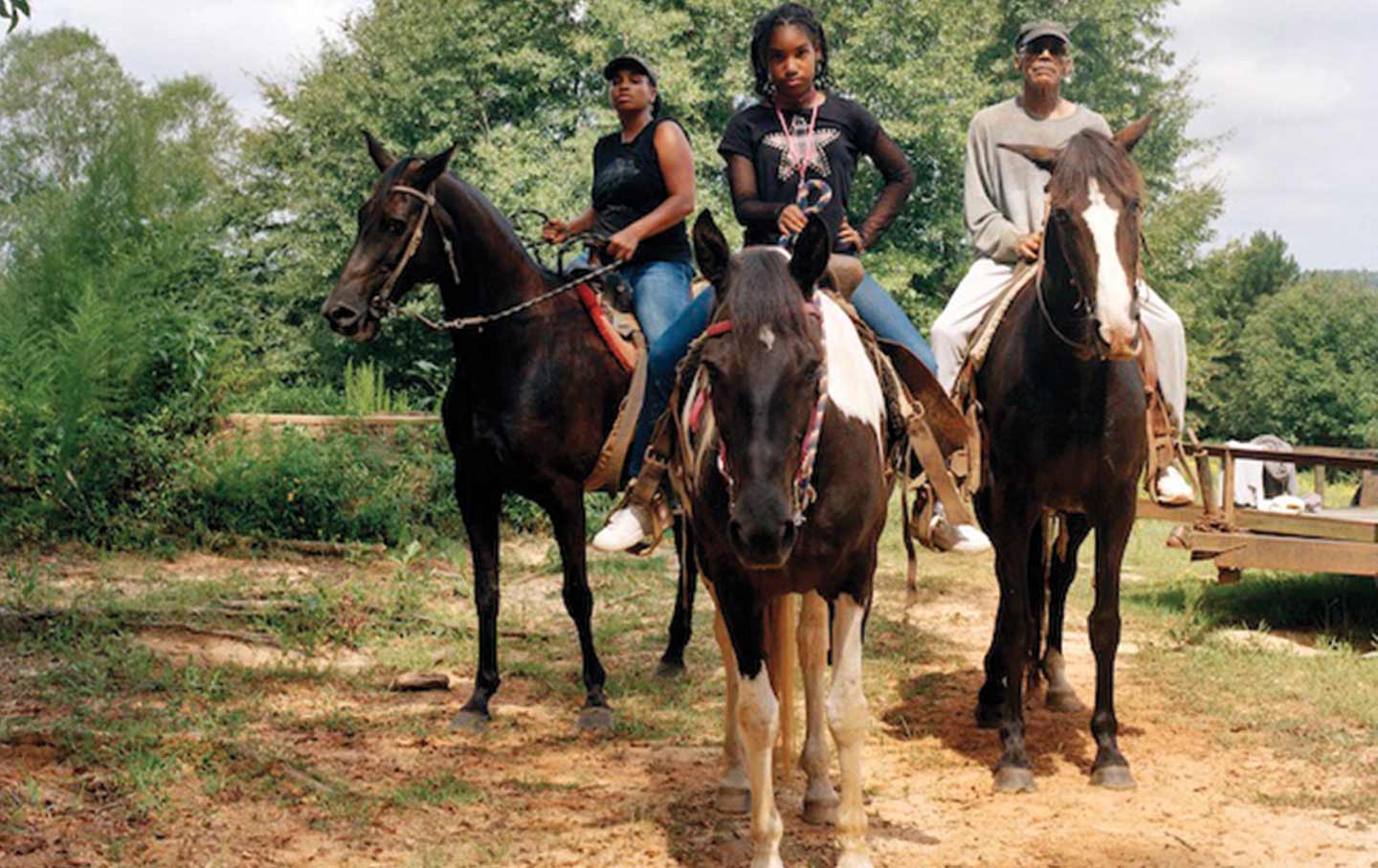
A brand new profession survey on the MoMA is an ideal illustration of the photographer’s mission: to reframe how viewers see the working-class and low-income folks whom she counts as kin….
Books & the Arts
/
Jillian Steinhauer
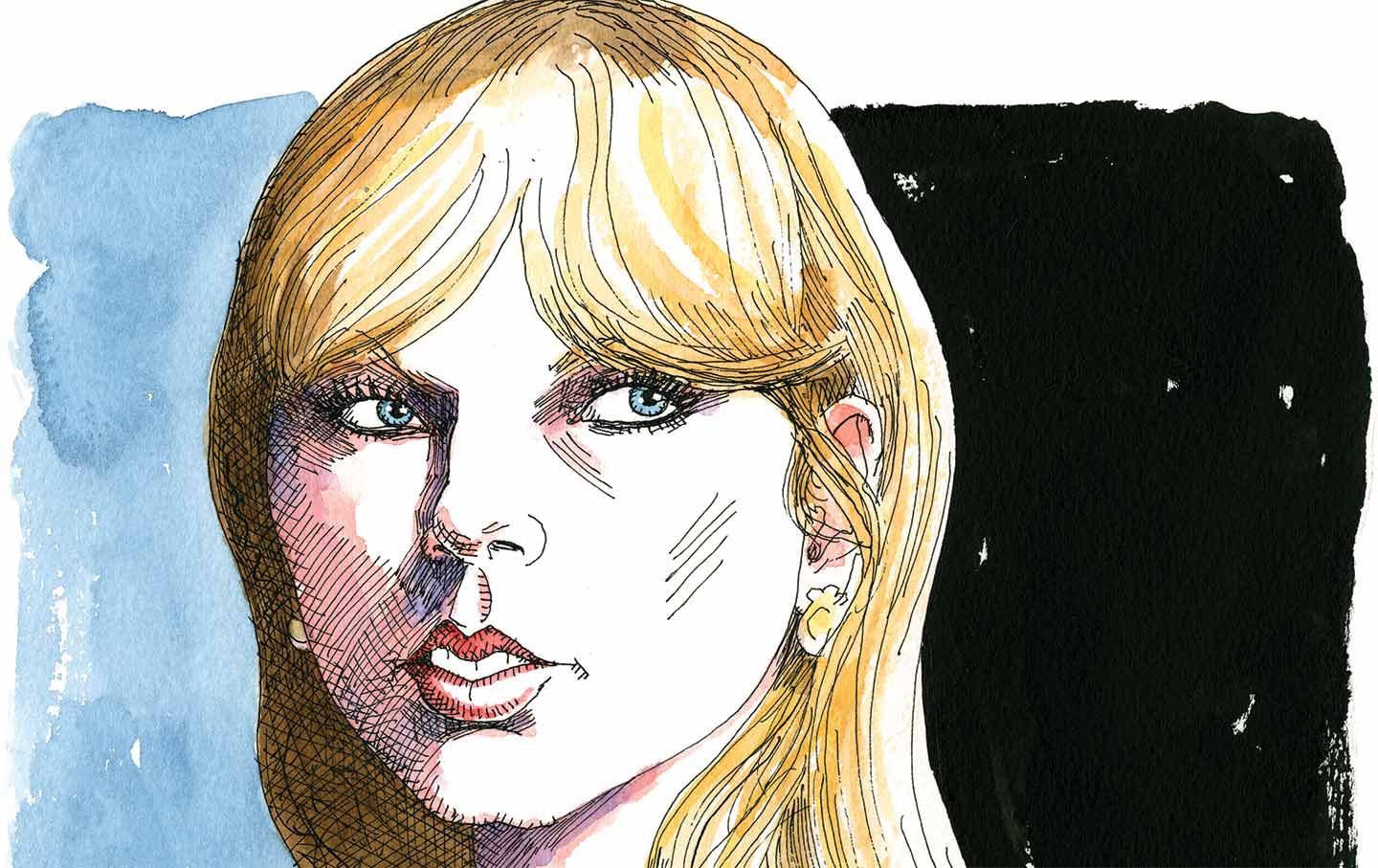
Nation singer, globetrotting pop star, and now melancholic poet—Taylor Swift has provided her listeners virtually the whole lot.
Books & the Arts
/
Stephanie Burt
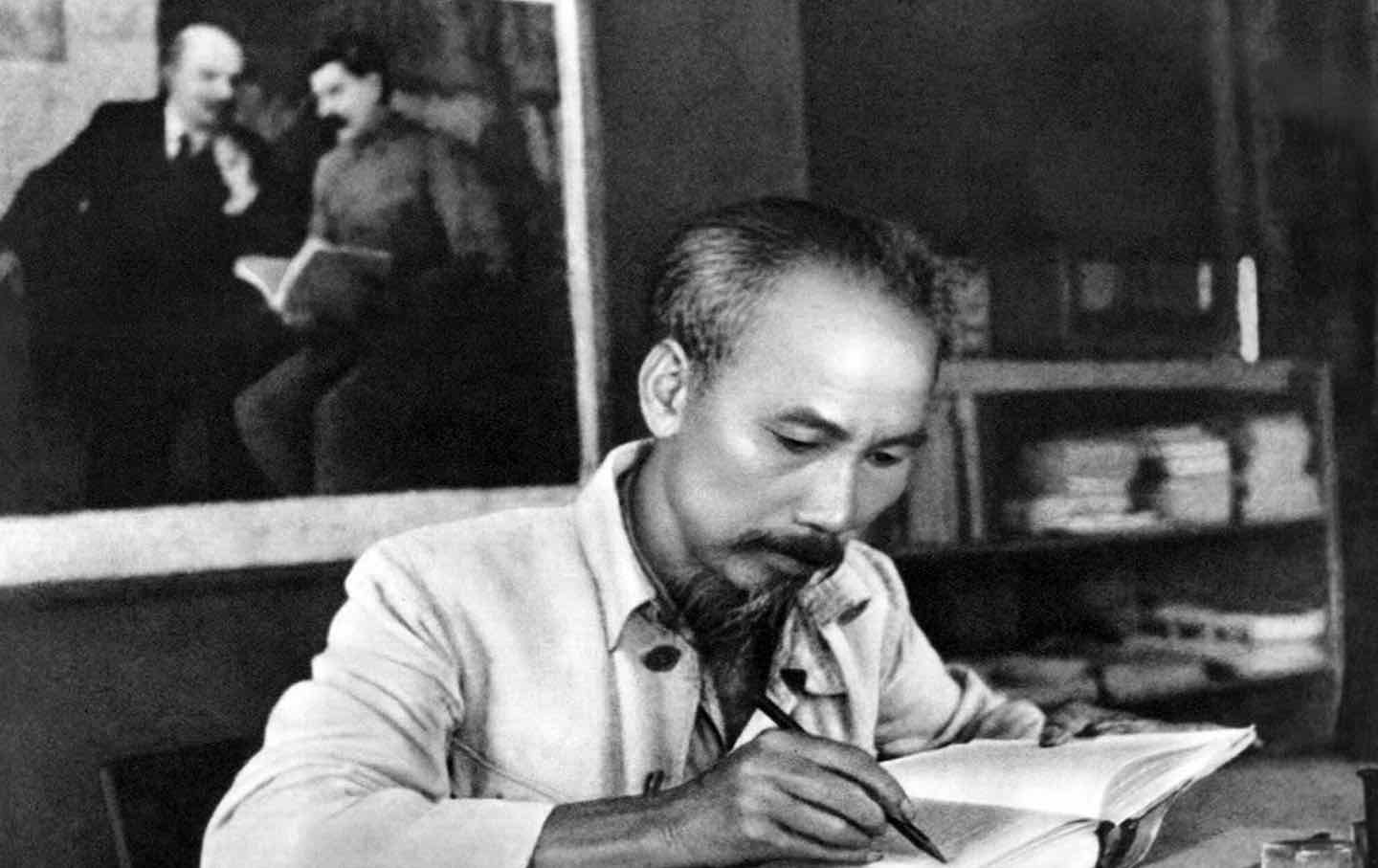
Joseph Andras’s novel on the Vietnamese revolutionary’s salad days in Paris imagines how a younger radical grew to become an icon.
Books & the Arts
/
Terry Nguyễn
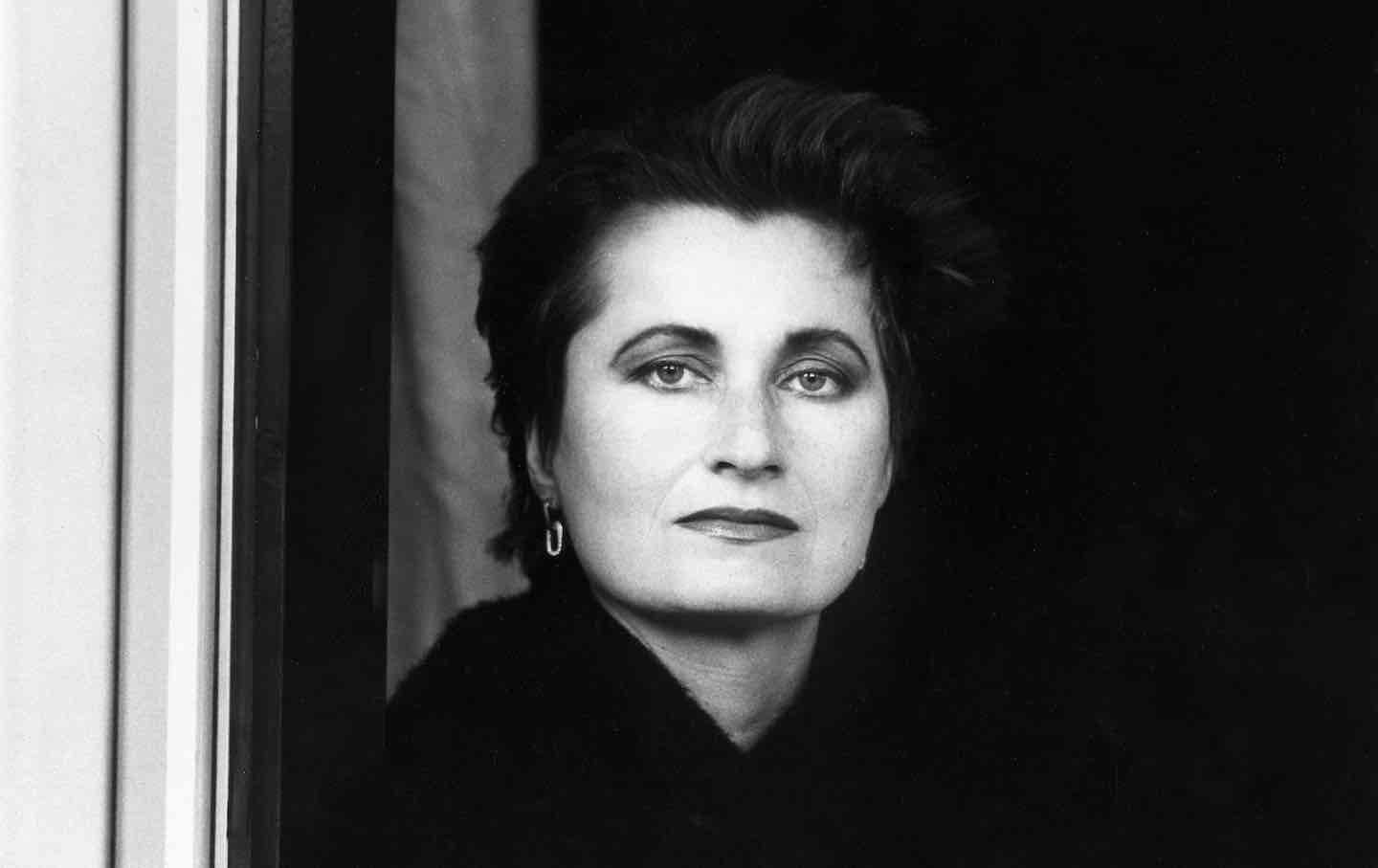
A protracted awaited English translation of her surprising magnum opus, The Youngsters of the Useless, asks its readers to have a look at the violent historical past buried simply beneath their ft.
Books & the Arts
/
John Semley
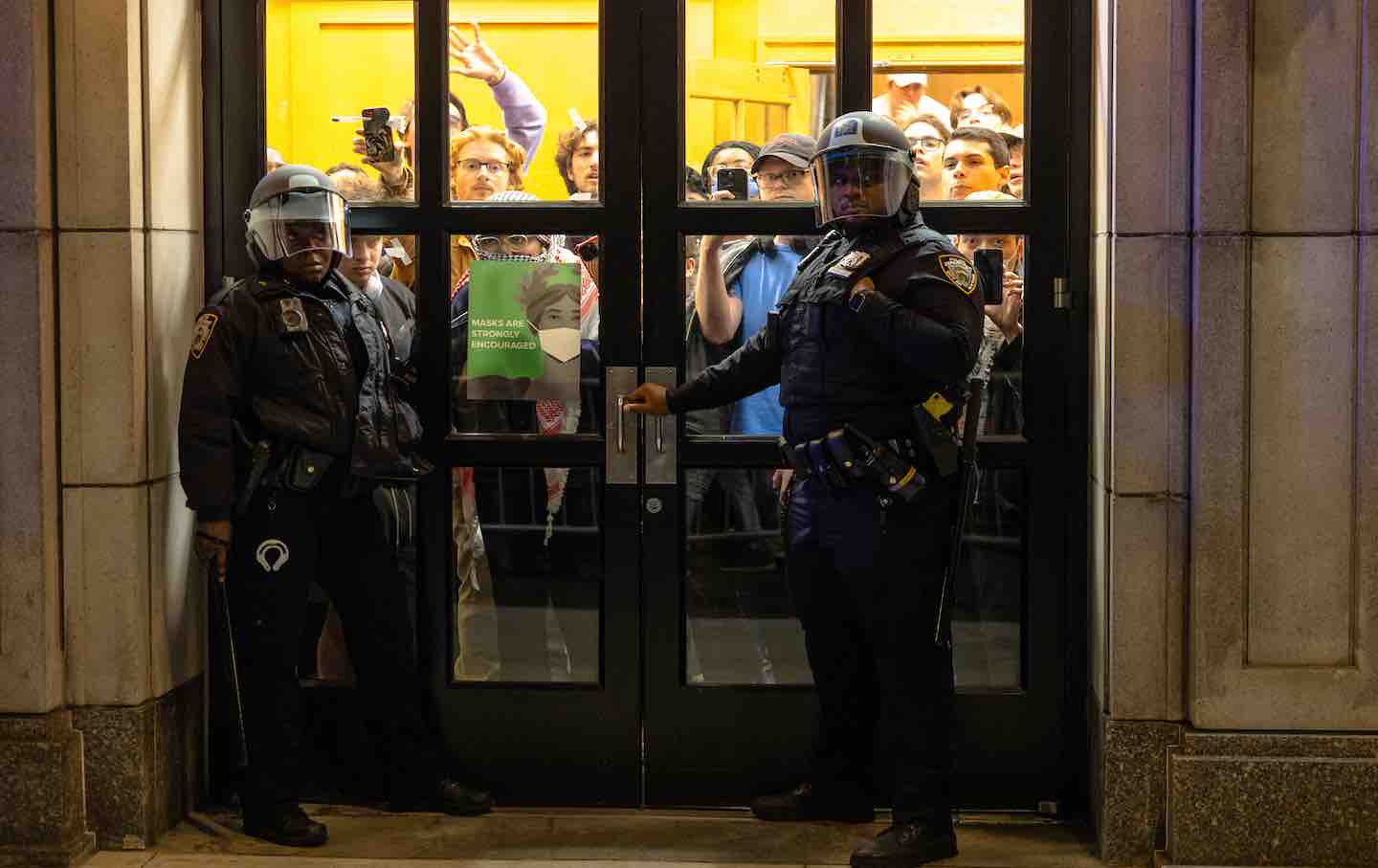
A current e-book argues that reordering the levels of labor and life—together with retirement—might eradicate conflicts between generations, whereas ignoring the true points that divide us….
Books & the Arts
/
Julian Epp
“Well bless their hearts.”












